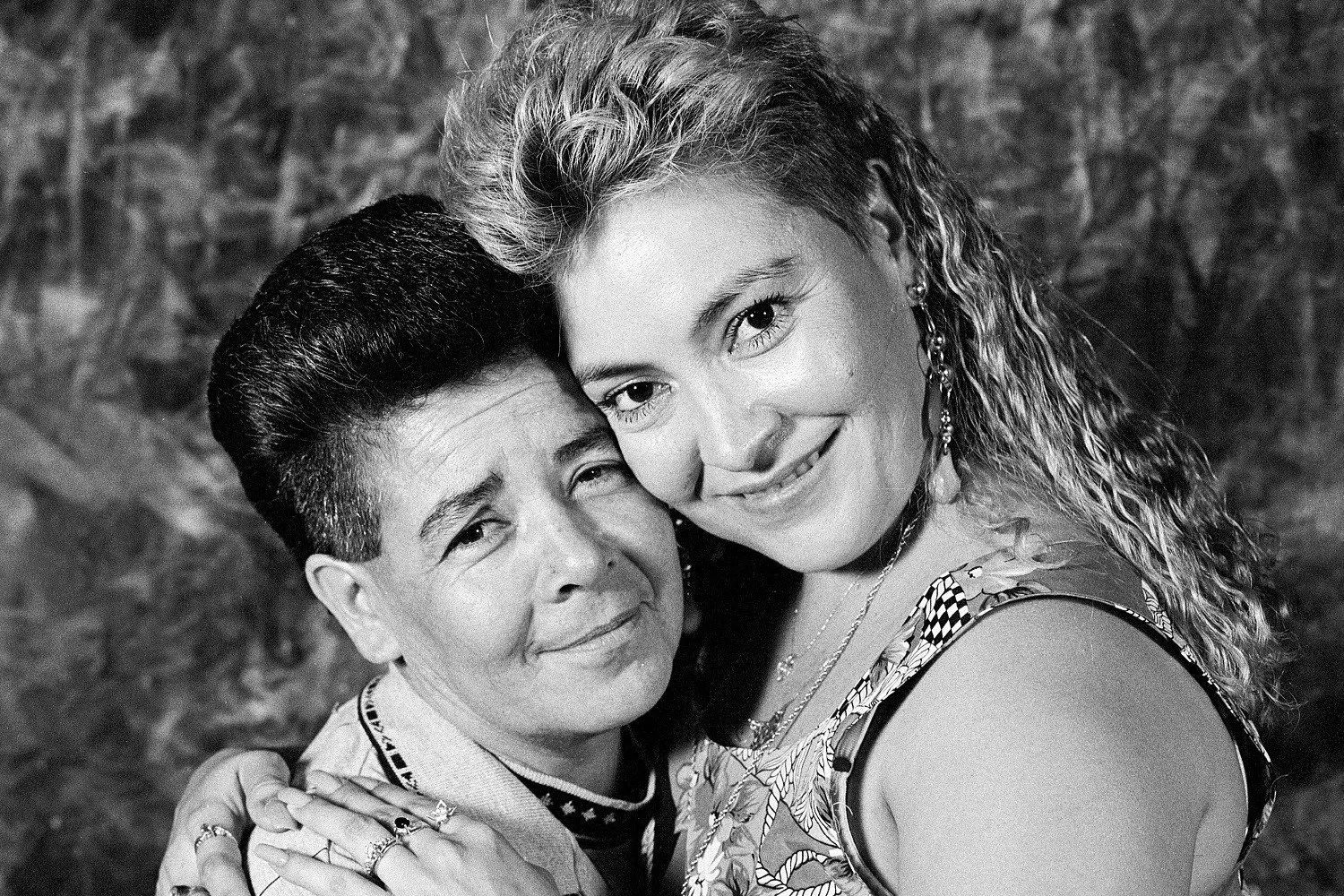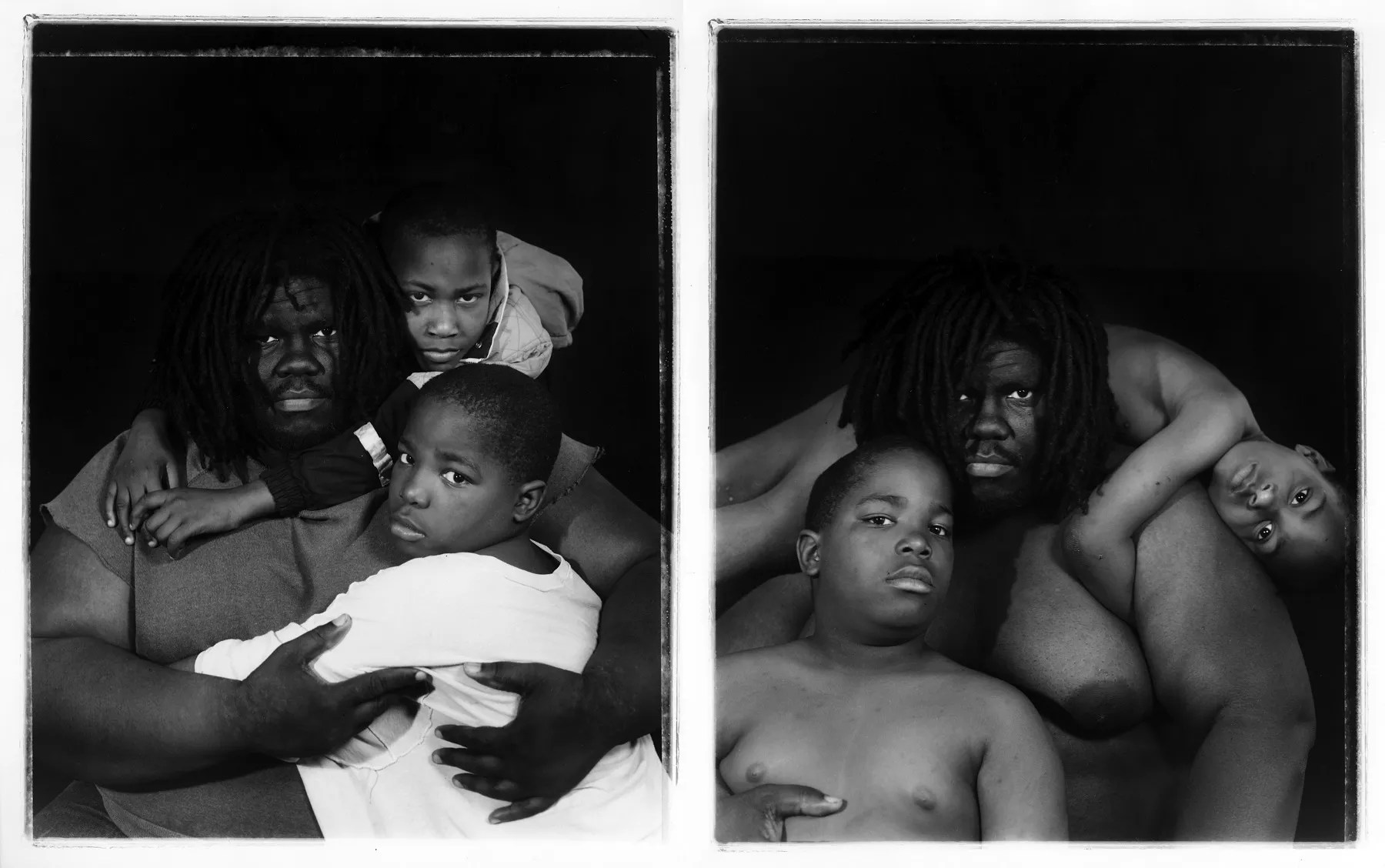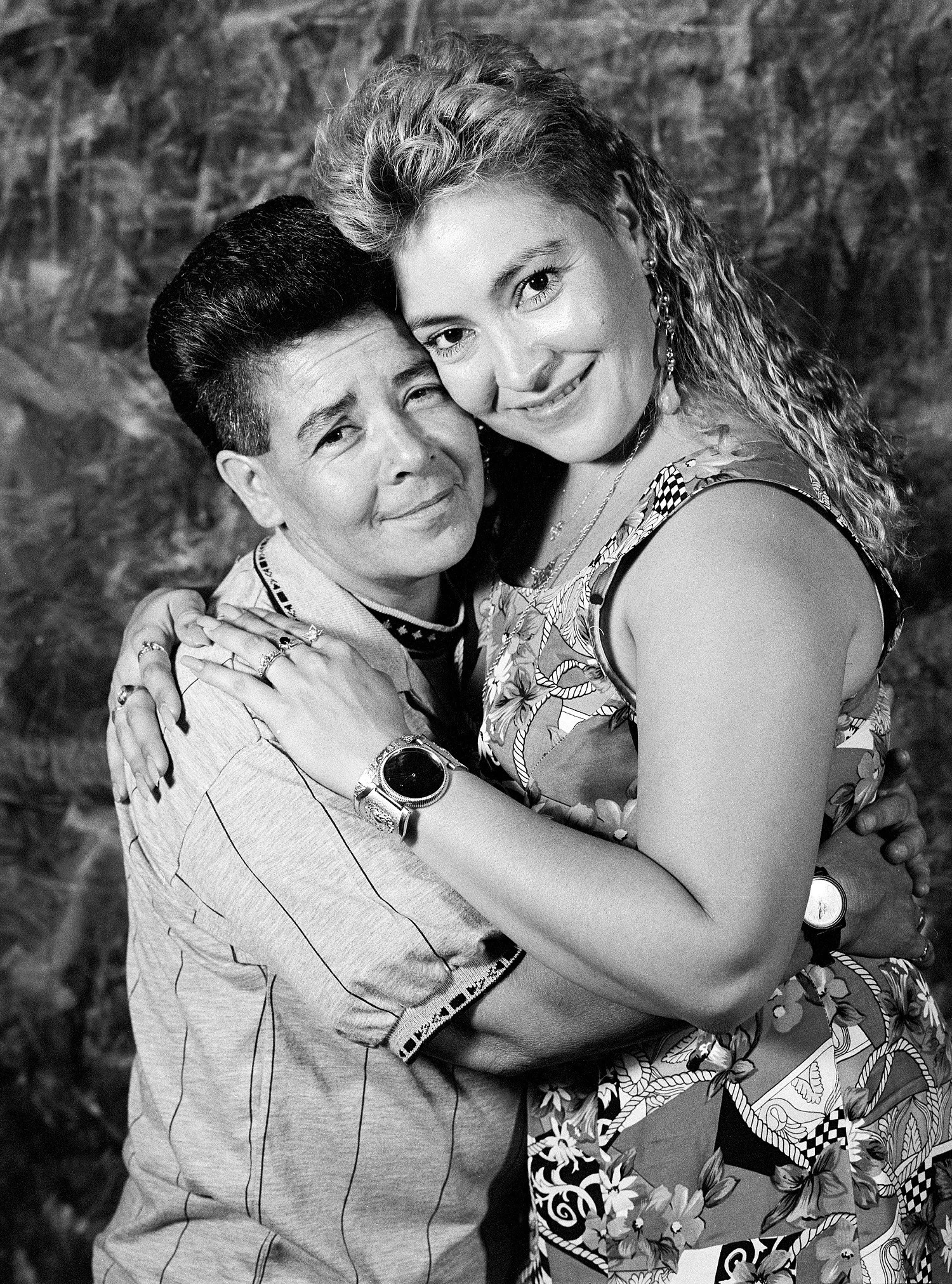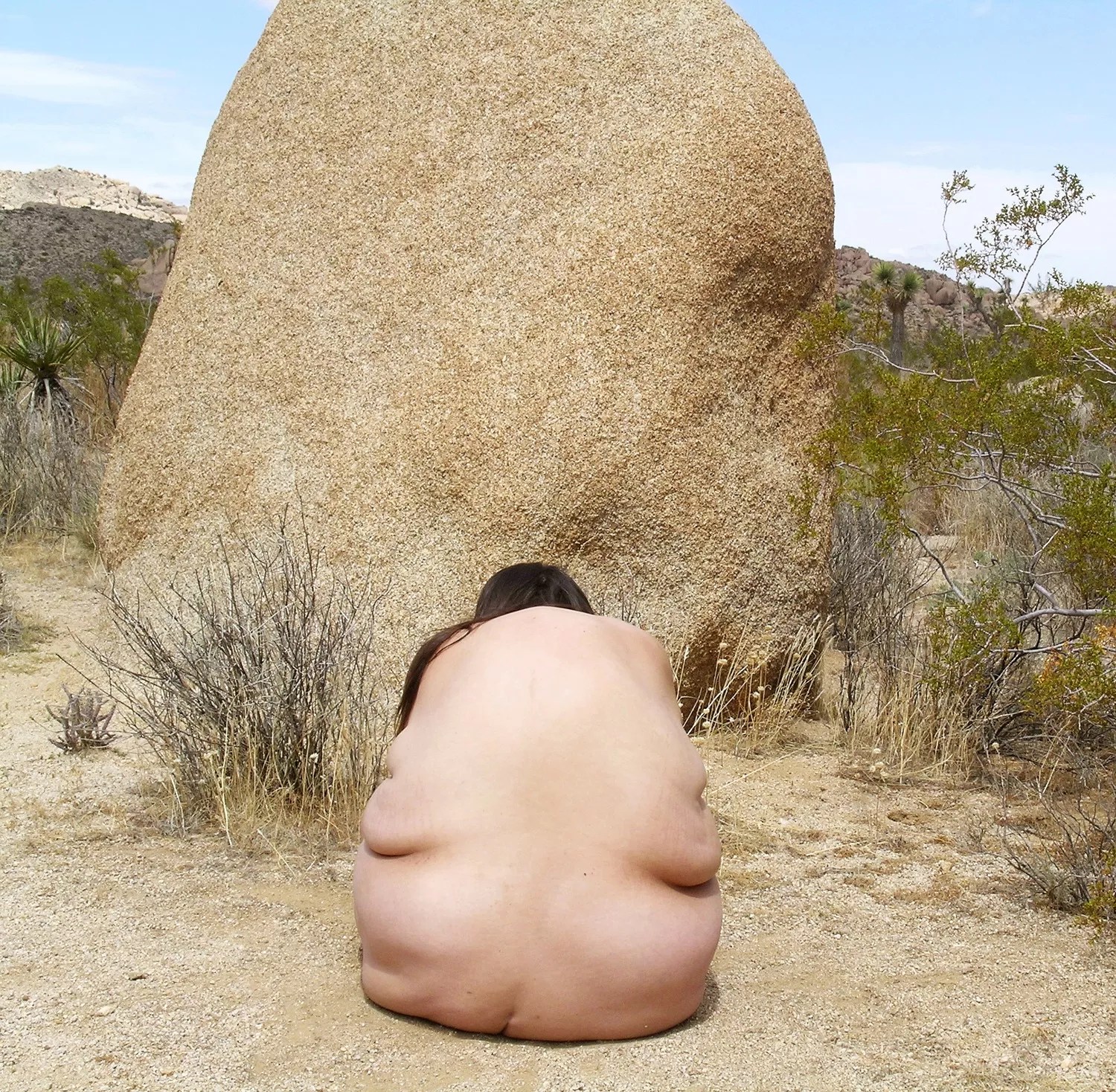
Courtesy of the artist and the UCLA Chicano Studies Research Center

Audio By Carbonatix
There’s a comment book at the entrance of “Show and Tell,” the career retrospective of Mexican-American artist Laura Aguilar on view at the Frost Art Museum FIU. According to Jordana Pomeroy, the Frost Art Museum’s director, the book works as a sort of community response barometer when
It’s not hard to spot the “negativity” they’re referring to. Aguilar’s work speaks directly about depression, marginalization, and isolation. Her portraits of herself and her subjects deal directly with the intersections of her own identity — Latina, lesbian,

Laura Aguilar, Clothed/Unclothed #34, 1994
Courtesy of the artist and the UCLA Chicano Studies Research Center
It’s this difficulty that first drew Pomeroy to Aguilar’s work. She initially encountered it as part of the media coverage of Pacific Standard Time: LA/LA, the massive Getty-funded initiative that brought dozens of Latin American artists’ work out of the
“I have to say, I wasn’t familiar with her work,” says Pomeroy, “but they published two photographs [of Aguilar’s] and I found them so compelling that I contacted the Vincent Price Museum and asked, ‘Are you traveling the show?’ They said, ‘No, but we’d like to.’”
Aside from the fact that Aguilar’s work is in conversation with the Frost Art Museum’s exhibition “Dangerous Women,” on view through May 20, what Pomeroy also recognized was simply “a fabulous body of work.” Beautiful compositions of both bodies and landscapes converge with a tender approach to friends, family, and self in Aguilar’s photographs. Her Plush Pony series, for example, is simultaneously an empowering, playful, and loving look at the patrons of a popular Latina lesbian bar in East L.A. Not only do the photographs show us what we so rarely see — women, often ignored by virtue of both their cultural and sexual identity, being joyful — but it also forces us to reflect on the identities we forcibly politicize at the price of their humanity.

Laura Aguilar, Plush Pony #15, 1992
Courtesy of the artist and the UCLA Chicano Studies Research Center
“The women pictured are saying, ‘Hey, we’re not making a political statement, this is just who we are,'” Pomeroy reflects. “‘This is how we pose, this is how we look, this is who we love.’ Our own political positions are projected onto the work, so it’s kind of a two-way street.”
Arguably, this is nowhere more poignant than in Aguilar’s work with her own body. A decade’s worth of these photos has its own room in the gallery, where viewers are given nearly 360 degrees of both black-and-white and color depictions of Aguilar’s voluptuous figure framed by trees, boulders, creeks, and desert. Often she is laying down or kneeling, at times with other women’s bodies but mostly alone, her own curves and crevices echoing the lines of the natural world around her.

Laura Aguilar, Grounded #111, 2006/2016
Courtesy of the artist and the UCLA Chicano Studies Research Center
“[Aguilar] makes her body look quite beautiful,” says Pomeroy. “How she kind of rolls up and becomes part of that incredible, vast and dusty landscape. She feels herself to be a part of nature. She hasn’t resolved her mind-body conflict, but she deals with it through her photography. It’s very confessional.”
I didn’t know how much I needed depictions of people — especially women — being tender with their own bodies until I saw this show. Something about seeing the “negative,” or what we prefer not to see, as deserving the most care and the most gentleness is more affecting than a thousand positive representations of women or Latinxs becoming models or CEOs. In an era where representation is becoming increasingly important in our cultural dialogue, Aguilar reminds us that we can represent what we want while also representing things exactly as they are.
In a video within the landscape gallery titled Untouched Landscape, Aguilar stands naked, facing the camera, her figure cropped at her hips and her body framed by a large boulder. She lays her hands on her stomach at times, or runs them
“Look at the photographs. In the photographs, you look beautiful. In the photographs, you’re being gentle with yourself by acknowledging that.
“In that picture, you look peaceful. Remember that you were peaceful.”
“Show and Tell.” On view through May 27 at the Patricia and Phillip Frost Art Museum FIU, 10975 SW 17th St., Miami; 305-348-2890; thefrost.fiu.edu. Admission is free.